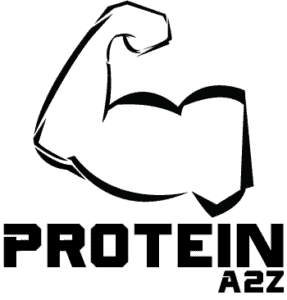The benefits of consuming protein to grow muscle fast are well known to most people. But are you consuming enough protein, and how can you know?
You should aim to consume at least 15 % of your daily calories from protein. And if you do not have the time to calculate that, lookout for these symptoms of protein deficiency:
- Swelling
- Hair, skin and nail problems
- Mood swings
- Fatigue
- Hunger
- Slow healing wounds or injuries
- Weak immune system
Table of Contents
The most common symptoms of protein deficiency
If you feel hungry all the time or feel fatigued for no apparent reason, you might have fallen victim to protein deficiency. It is a good idea to calculate your daily calorie intake and make sure to consume at least 2 grams of protein for each kilogram of body weight. That should amount between 20 % and 30 % of your calories.
Other known symptoms of protein deficiency are swelling in arms and feet, a weak immune system, pimples, and bad overall health of skin, nails and hair.
Aside from that, our brains use chemicals that are called neurotransmitters to function properly. Most of them are made out of amino acid blocks, which are fueled into our bodies thanks to consuming protein.
If you are not consuming enough protein, your brain won’t get enough neurotransmitters in order to work as it should. If the needed amount is not properly formed, the chemicals in the human body can cause changes to your mood and decision-making skills.
How to deal with protein deficiency
Try to have a clear idea of how much protein per day your body needs. It is not hard to calculate that according to your goals. If you aim to lose weight, calculate your current calorie intake and decrease it by 10-20 %.
For example, let’s say you consume 2000 calories a day. Out of these 2000 calories, you need to receive between 20 and 30 % of them from a protein source. Which means per 2000 calories you would need between 400 and 600 calories from protein.
One gram of protein yields 4 calories, thus you need to consume between 100 and 150 grams of protein.
To do that, implement protein-rich foods into your diet, drink a protein shake in the morning or after working out. Another great idea is to consume your protein-rich foods before your carbs. For example, if you are eating rice and chicken breasts, make sure you eat all of the chicken before you dive into the rice.
It is important for elderly to get enought protein. Read about the best protein powder for elderly here.
More about protein deficiency
Is there a medical test for protein deficiency?
Yes, any licensed medical practitioner can prescribe a test and let you visit a clinical facility where you can give a blood sample to be tested for protein deficiency. It will let you know the total amount of protein circulating in your body, as well as many other vital substances for your body.
Are there any diseases that are caused by the lack of protein?
A lack of protein is known to cause a variety of diseases, including marasmus and edema. It can even lead to organ failure. Other possible diseases you might experience if you haven’t consumed a good amount of protein for too long are kwashiorkor, which leads to shrinkage of muscle tissue, and an impaired immune system.
Are 100 grams of protein enough per day to build muscle?
Depending on your physique and goals, a different amount of protein should be consumed. Aim for at least 2 grams of protein per kilogram of body weight. One hundred grams of protein should be enough for a woman weighing less than 50 kilograms to build muscle consistently.

User comment about getting enough protein
How Much Protein Do I Need For Building and Repairing My Muscles?
How much protein do you need? This is an important question that most people, when they think of protein, will quickly answer “adequate”. It’s easy to think that you get enough protein in your diet and it isn’t until you put it into perspective that you realise just how much you really do need to increase your protein intake. Protein is a key building block in the building of strong muscles and strong bones and it is absolutely essential for maintaining healthy skin, hair, nails and hearing.
The body needs at least one gram of protein per pound of body weight in order to build and repair muscle, and to control muscle damage, both during and after exercise. By following the Australian Dietary Guidelines you can easily fulfill your daily protein requirements. Most Australian adults get more than enough protein in their diet alone. The problem occurs when you do not use some of the essential vitamins, minerals and amino acids that are needed for building and repairing muscle tissue. Protein supplements are a great way to ensure that you get the amount of essential nutrients that are needed to maintain healthy muscle tissue throughout the day.
A balanced diet is the best way to ensure that you get all of the nutrients you need to maintain healthy muscles throughout the day and these dietary guidelines will ensure that you get all of the essential amino acids that are required. If you do not follow a balanced diet then you will be limiting some of the beneficial amino acids that are used in building and repairing muscles. The benefits of protein to the body are very wide and if you are an active person then a diet high in protein is probably necessary for the maintenance of your muscles and strength. When you follow a healthy balanced diet then you are also meeting your daily protein requirements and avoiding protein deficiency symptoms such as muscle cramps and headache.

